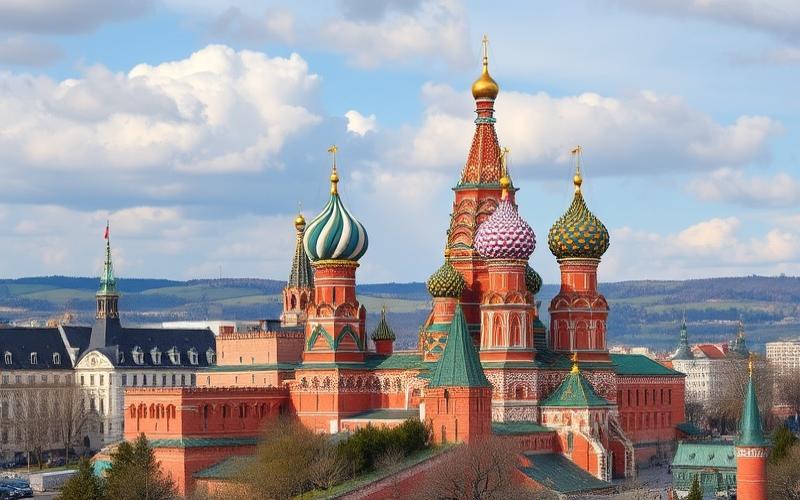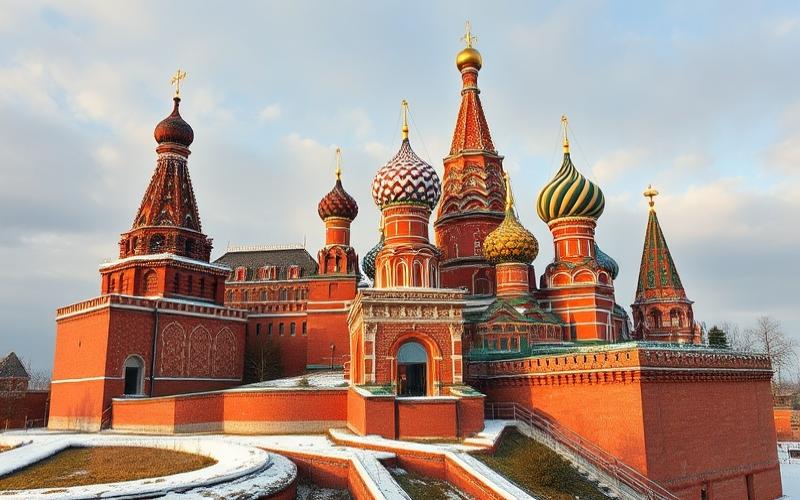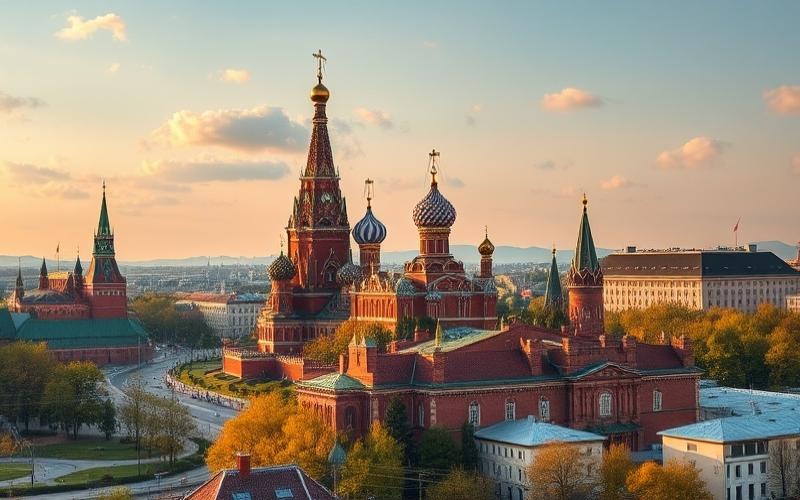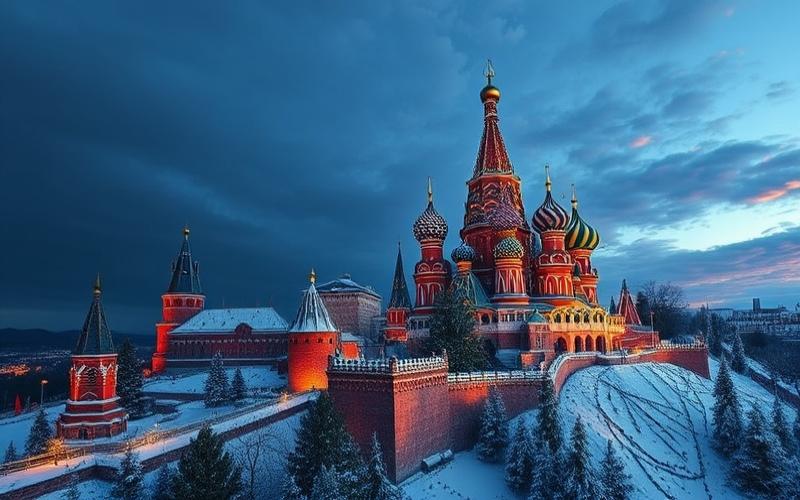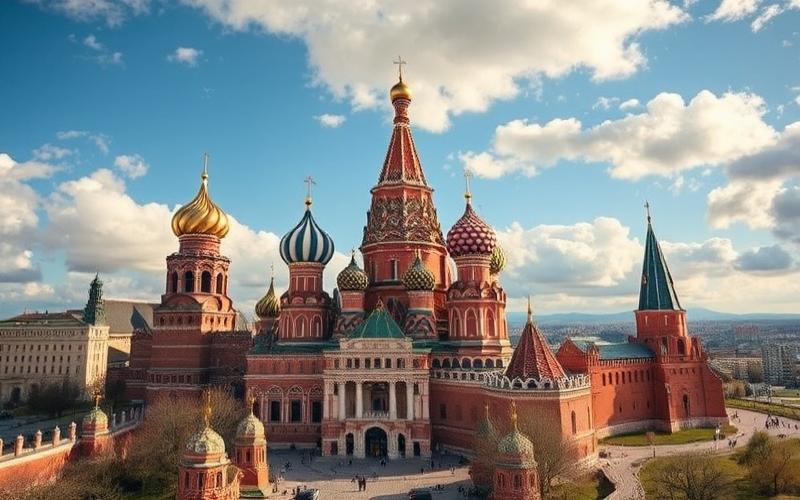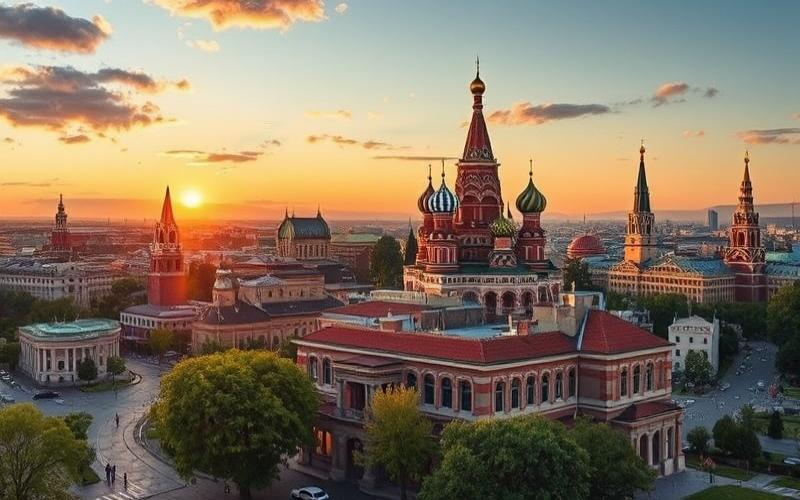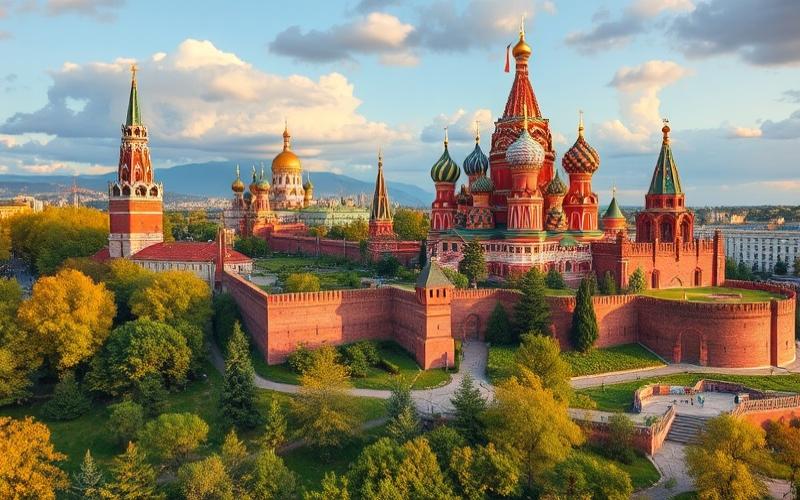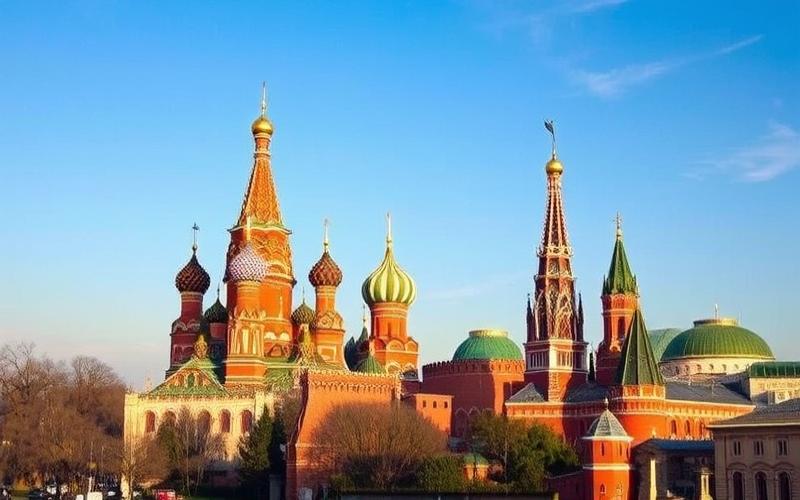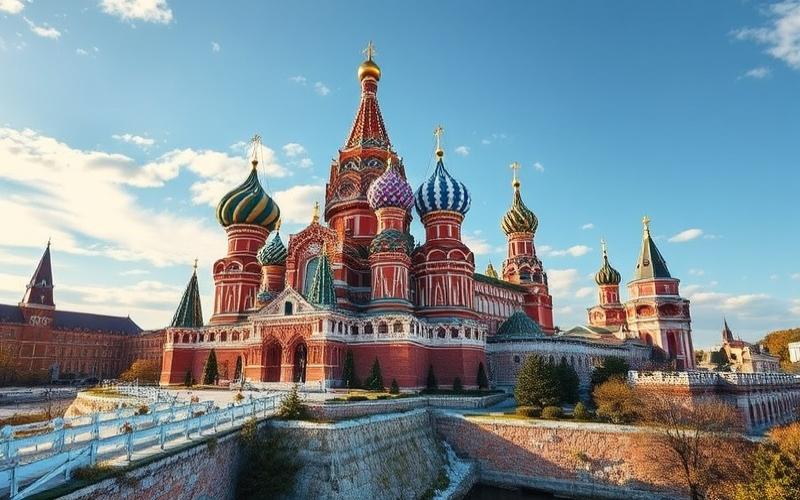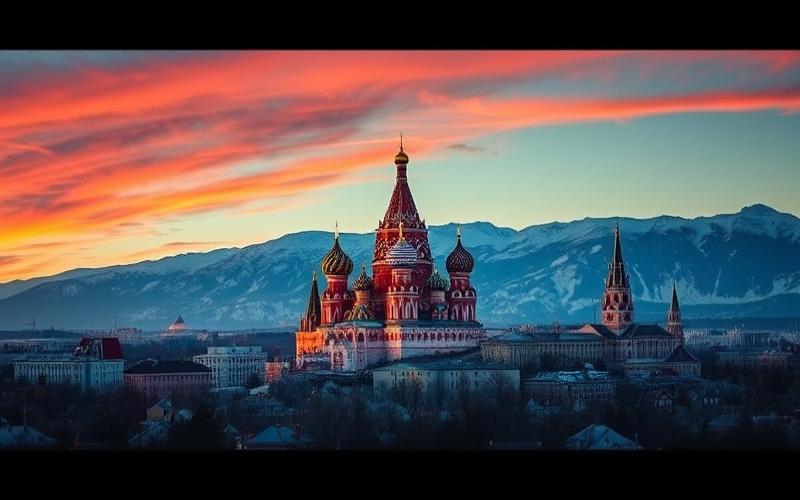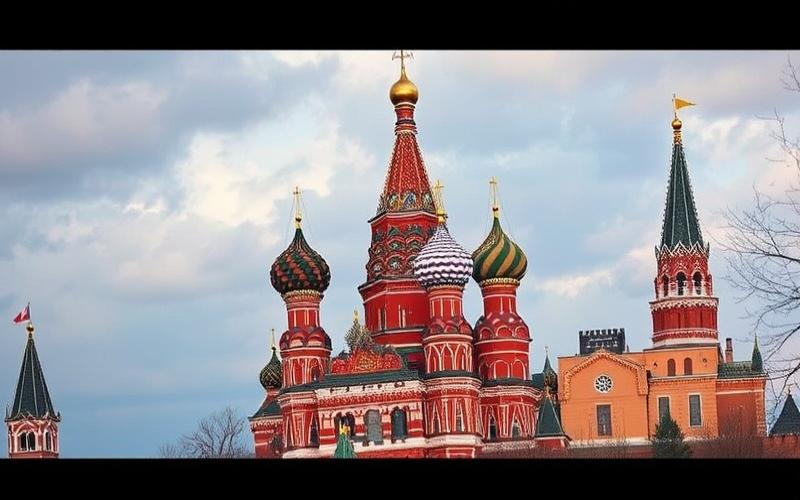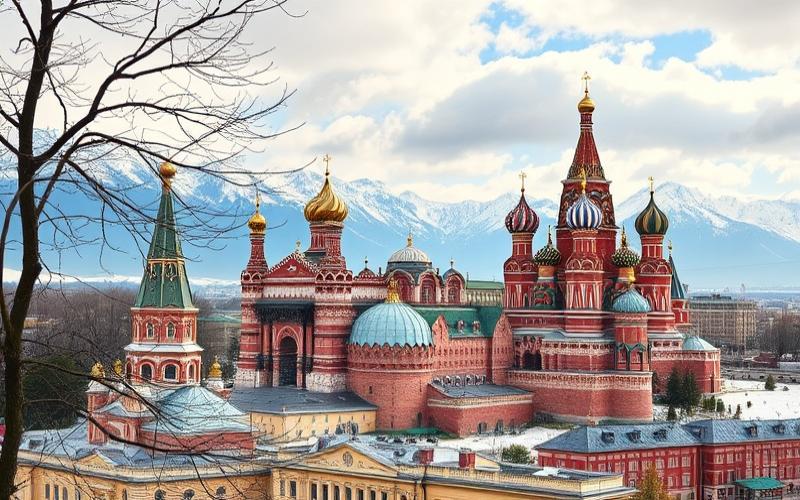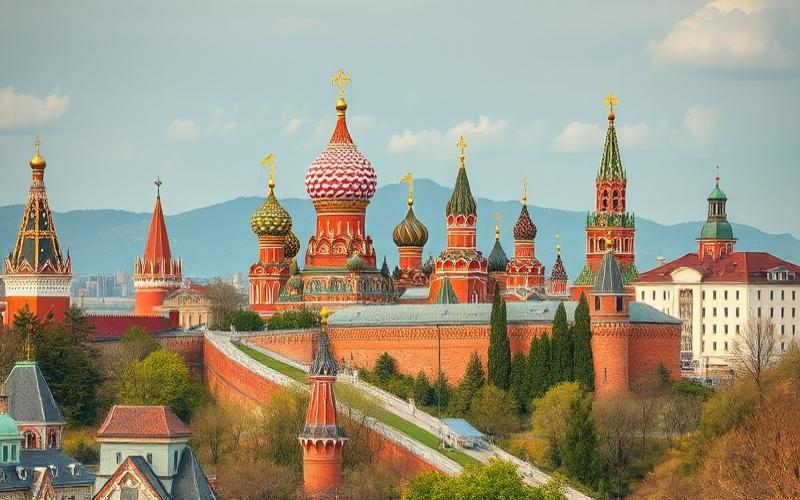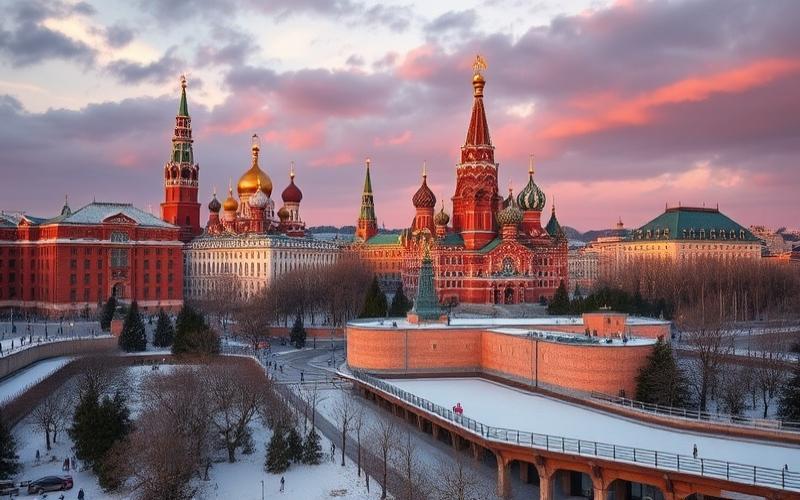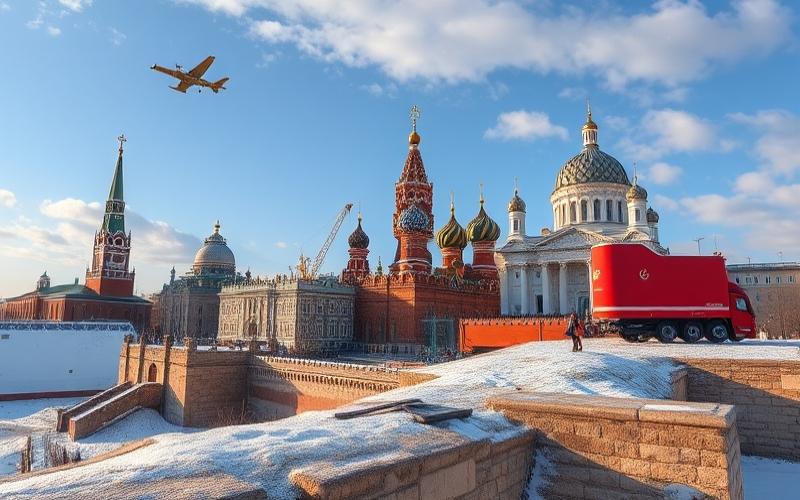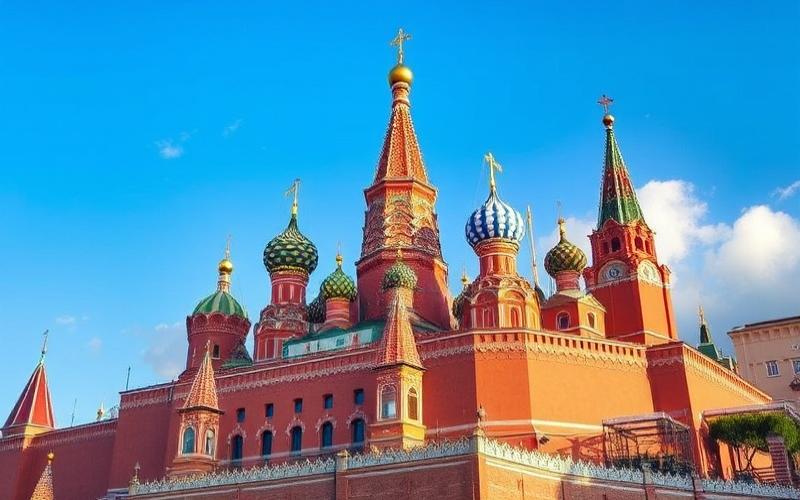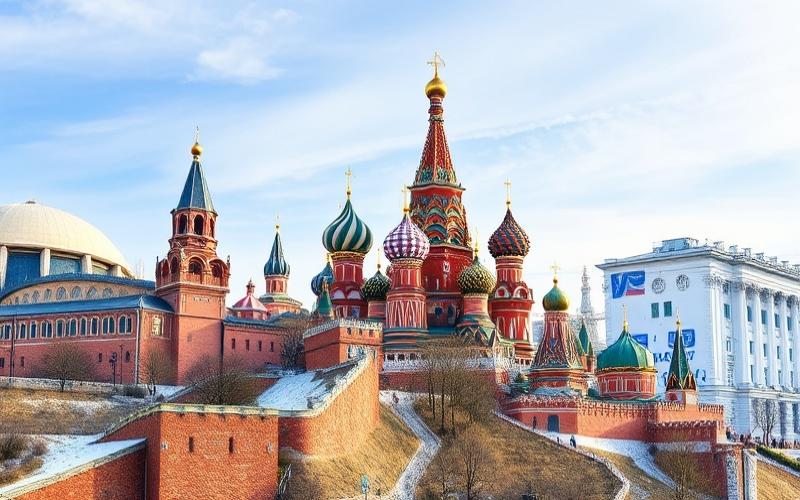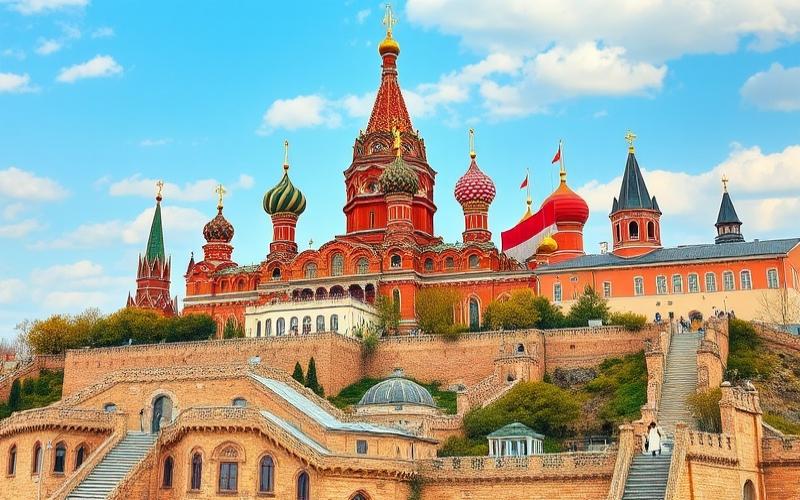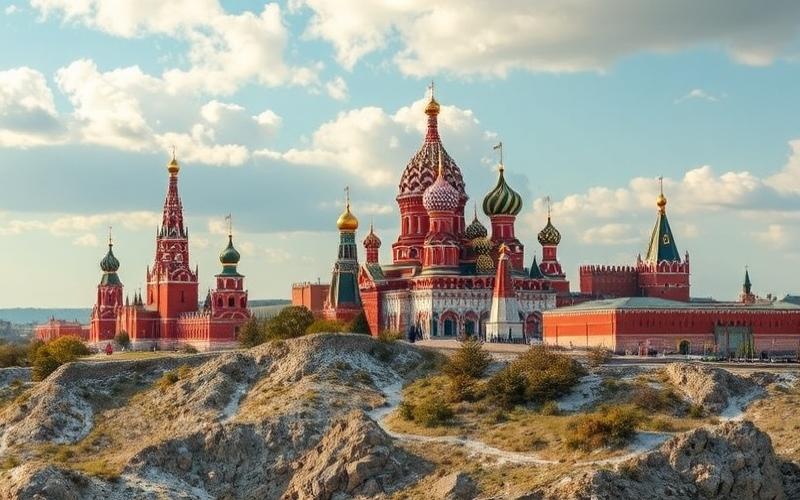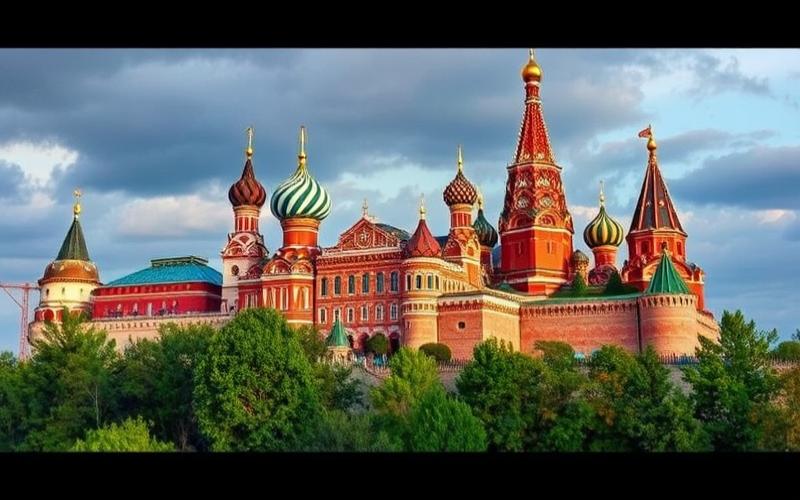
 Published on and written by Cyril Jarnias
Published on and written by Cyril Jarnias
Navigating the maze of non-resident taxation in Russia requires a thorough understanding of various reporting obligations, which can become a significant challenge for expatriates and foreign companies. With its unique tax framework, Russia requires non-residents to familiarize themselves with complex and constantly evolving legislation.
Beyond tax rates, it’s crucial to understand the nuances of annual tax returns and special procedures that differ significantly from those applied to residents. This article explores these lesser-known but essential aspects, providing readers with the keys to avoid pitfalls and ensure compliance with peace of mind.
Expatriate Taxation: Understanding Obligations in Russia
Tax Residency Criteria in Russia
– An individual is considered a tax resident if they stay in Russia for more than 183 days during any consecutive 12-month period.
– Non-residents are those who do not meet this criterion.
| Tax Status | Definition | Main Consequence |
|---|---|---|
| Tax Resident | > 183 days in Russia over 12 consecutive months | Taxed on worldwide income |
| Non-Resident | ≤ 183 days in Russia | Taxed only on Russian-source income |
Tax Obligations by Residency
– Tax Residents: taxed on all income, whether from Russian or foreign sources.
– Non-Residents: taxed only on Russian-source income, typically at a higher rate.
Types of Taxable Income
– Salaries earned in Russia or abroad
– Investment income (dividends, interest)
– Real estate income (rental income, capital gains from property sales)
– Other income: gambling winnings, copyright royalties, independent activities
| Income Type | Tax Resident (Taxed) | Non-Resident (Taxed) |
|---|---|---|
| Russian Salary | Yes | Yes |
| Foreign Salary | Yes | No |
| Russian Dividends | Yes | Yes |
| Foreign Dividends | Yes | No |
| Russian Real Estate Income | Yes | Yes |
| Foreign Real Estate Income | Yes | No |
Applicable Tax Rates
– Tax Resident:
- Standard rate of 13% on most income
- Certain income (e.g., dividends) may be subject to specific rates
– Non-Resident:
- Rate of 30% on Russian-source income
– For “patent” holders (work permits for certain nationals), monthly payment of an immigration tax
Deductions and Tax Credits
– Residents may benefit from certain tax deductions (medical expenses, mortgage interest, donations, etc.).
– Non-residents generally cannot access these deductions.
– Tax credits are limited and subject to conditions.
Tax Return: Deadlines and Process
– The tax year corresponds to the calendar year.
– Return must generally be filed by April 30 of the year following income receipt.
– Tax payment due by July 15.
– Filing is done with the Federal Tax Service, online or in person.
– A Tax Identification Number (INN) is mandatory for any tax return.
International Tax Treaties
– Russia has signed tax treaties with many countries, including France, to avoid double taxation.
– These treaties determine which country has the right to tax certain income and provide credit or exemption mechanisms.
– Expatriates should verify the applicable treaty between Russia and their home country to optimize their tax situation.
Key Takeaways
Expatriates in Russia must determine their tax status, as it determines the scope of their tax obligations and applicable rates. Reporting worldwide or only Russian income depends on tax residency. International treaties can reduce tax burden in case of double taxation.
Good to Know:
Expatriates in Russia are considered tax residents if they spend more than 183 days per year in the country, and must then declare all their worldwide income, with a 13% tax rate on Russian-source income; it’s crucial to verify international tax treaties to avoid double taxation.
Non-Residents and Taxation in Russia: Rules and Specifics
Non-Resident Tax Status Criteria in Russia:
- Any individual staying in Russia for less than 183 days during any consecutive 12-month period is considered a non-resident.
- The 183-day threshold includes all days of presence, even non-consecutive, during the calendar year.
- Beyond this threshold, the individual becomes a tax resident and is taxed differently.
Tax Rules Applicable to Non-Residents:
| Category | Tax Non-Resident in Russia |
|---|---|
| Taxable Income | Russian-source income only |
| Tax Rate | 30% (individual income) |
| Dividend Taxation | 15% |
| Bank Interest Taxation | 30% |
| Real Estate Capital Gains | 30% |
| Deductions/Exemptions | No deductions or allowances granted to non-residents |
- Non-residents are taxed only on their Russian-source income (salaries, rental income, capital gains, dividends, etc.).
- No deductions or exemptions generally apply to non-residents.
- Foreign-source income is not taxed in Russia for non-residents.
Tax Filing Obligations for Non-Residents:
- Non-residents must complete a tax return (form 3-NDFL) by April 30 of the year following income receipt.
- Tax payment must be made by July 15 of the same year.
- Tax may be withheld at source by the Russian employer or payer, but some income requires direct filing and payment by the taxpayer.
- Supporting documents (contracts, bank statements, etc.) must be kept in case of tax audit.
Double Taxation Treaties:
- Russia has signed numerous bilateral tax treaties, notably with France, Belgium, Switzerland, Canada, and other countries.
- These treaties prevent double taxation and provide tax credit or exemption mechanisms.
- In case of residency conflict, treaties examine successively:
- Permanent home
- Center of vital interests
- Habitual abode
- Nationality
Risks and Penalties for Non-Compliance:
- In case of non-filing or late payment, financial penalties apply (fines proportional to amount due, late payment interest).
- Tax audits may result in reassessments with penalties and interest.
- A non-resident may be denied entry to Russian territory in case of fraud or significant tax debt.
- Failure to regularize may lead to criminal prosecution in case of proven tax fraud.
Summary of Obligations and Risks for Non-Residents:
- Mandatory declaration for all Russian-source income.
- Tax payment at fixed rate of 30%.
- No deductions or allowances.
- Application of international treaties in case of dual residence.
- Financial and criminal penalties for non-compliance.
Warning: Compliance with tax obligations in Russia is strictly monitored, including for non-residents. Failure to file or pay exposes individuals to significant penalties.
Good to Know:
A tax non-resident in Russia is an individual staying less than 183 days during any twelve-month period and is subject to a 30% tax rate on Russian-source income, with strict reporting obligations and internationally recognized tax treaties that may potentially offer exemptions.
Expatriate Tax Filing: Avoiding Double Taxation
Double taxation occurs when an expatriate is subject to tax on the same income in two different countries. For expatriates in Russia, this means that generated income may be taxed both in Russia (withholding tax or local income tax) and in the home country, unless specific provisions apply.
Principles of Double Taxation and Impact for Expatriates in Russia:
- When an expatriate works or receives income in Russia, they may be taxed locally, but also in their country of tax residence or origin.
- This situation is common for non-residents, as Russia applies withholding tax on Russian-source income, while the home country taxes this same income according to its own rules.
- The recent suspension of certain tax treaties between Russia and so-called “unfriendly” countries (including France, Germany, Italy, etc.) has increased the risk of double taxation for expatriates from these countries.
Bilateral Double Taxation Agreements Signed by Russia:
| Country | Treaty Status | Main Benefits |
|---|---|---|
| France | Suspended | Double taxation protection currently inoperative |
| India | In Force | Taxation limited to differential between tax rates |
| Germany | Suspended | No tax credit for taxes paid in Russia |
| China | In Force | Standard tax credit mechanisms |
- Treaties aim to prevent the same income from being taxed twice, by establishing rules for sharing tax jurisdiction and tax credit or exemption mechanisms.
- In case of suspension, the possibility to offset tax paid in Russia in the home country may disappear.
Procedures to Benefit from Treaties:
- Determine tax residency (residency certificate issued by tax administration of residence country).
- Complete specific forms for non-double taxation or tax credit applications.
- Provide:
- Proof of income received in Russia (pay stubs, employer certificates, bank statements)
- Tax residency certificate
- Proof of tax already paid in Russia (withholding tax certificates)
- Submit application to tax administration of home country, sometimes also to Russian tax administration.
Practical Examples of Tax Implications Without Treaty:
| Situation | Tax Consequence |
|---|---|
| A French national receives salary in Russia | Withholding tax in Russia + taxation in France without tax credit |
| An Indian national receives dividends in Russia | Withholding tax in Russia, tax credit in India for the difference |
| A German national sells real estate in Russia | Taxation in Russia + risk of taxation in Germany |
Practical Tips for Expatriates:
- Verify annually the status of the double taxation treaty between Russia and home country.
- Collect and keep all proof of income and taxes paid.
- Register with consular registry of home country to prove residence abroad.
- Seek assistance from a tax expert specialized in international taxation, especially if treaty is suspended.
- Verify tax residency criteria to avoid subsequent reassessment (particularly in France: home, main activity, center of economic interests).
- Consider legislative updates, such as the extension to 10 years of the French tax administration’s right to reassess in case of tax residency dispute.
Russian Specifics for Non-Residents:
- Tax non-residents in Russia are subject to higher tax rates on their Russian-source income.
- Obligation to declare income received, even if tax was already withheld at source.
- Risk of being considered Russian tax resident if more than 183 days are spent in Russia during any 12-month period, with obligation to declare all worldwide income in Russia.
- Expatriates must ensure compliance with local migration and tax regulations, under penalty of sanctions or bank account freezing.
To limit double taxation risks, it’s essential to follow tax treaty developments, accurately document your tax situation, and seek professional assistance from the time of relocation abroad.
Good to Know:
Expatriates in Russia should consult bilateral agreements to avoid double taxation, typically requiring submission of specific forms and proof of tax residency. Consulting a tax expert can be crucial for navigating the complexities of the Russian tax system, especially to avoid unexpected tax burdens.
Disclaimer: The information provided on this website is for informational purposes only and does not constitute financial, legal, or professional advice. We encourage you to consult qualified experts before making any investment, real estate, or expatriation decisions. Although we strive to maintain up-to-date and accurate information, we do not guarantee the completeness, accuracy, or timeliness of the proposed content. As investment and expatriation involve risks, we disclaim any liability for potential losses or damages arising from the use of this site. Your use of this site confirms your acceptance of these terms and your understanding of the associated risks.

